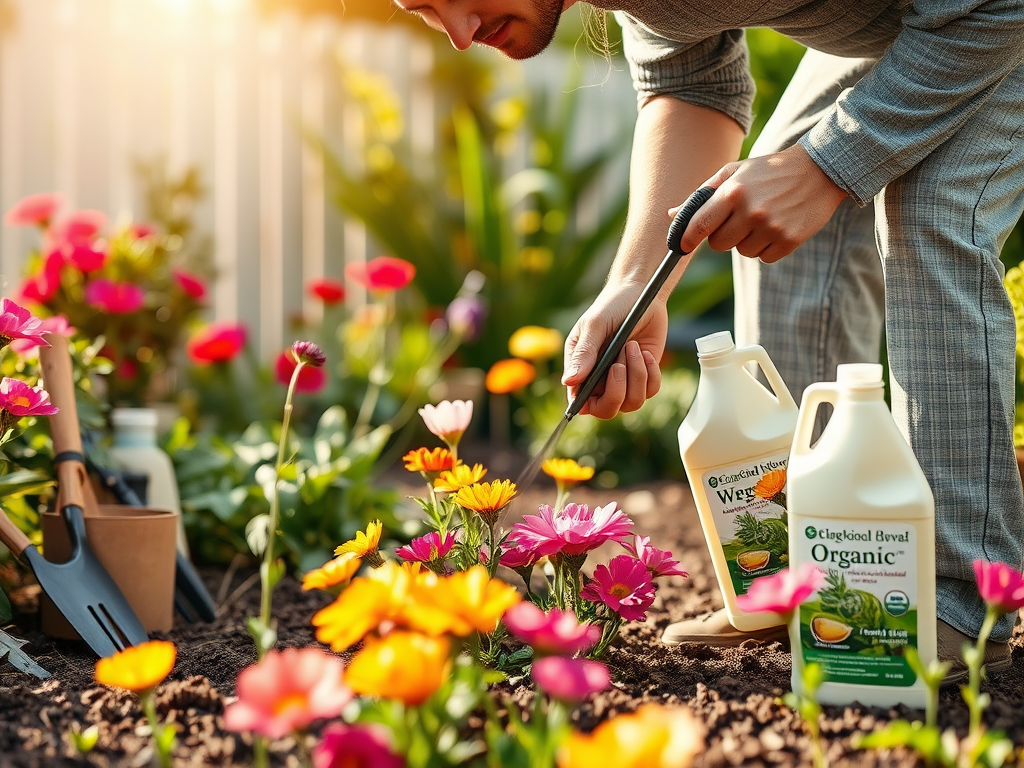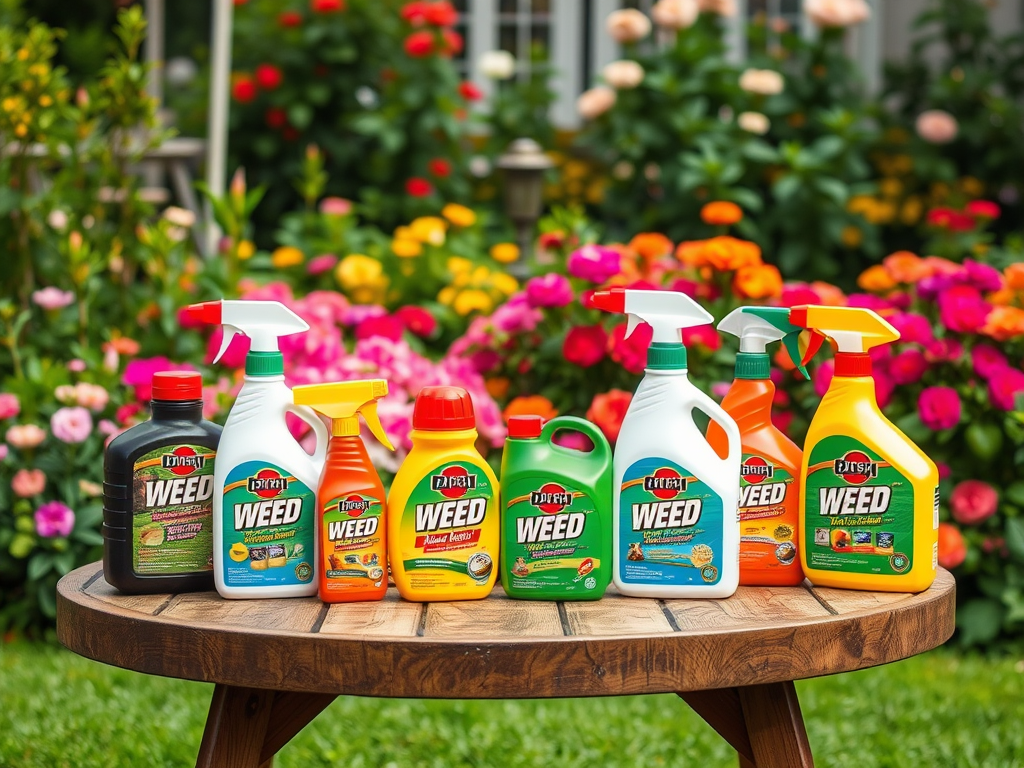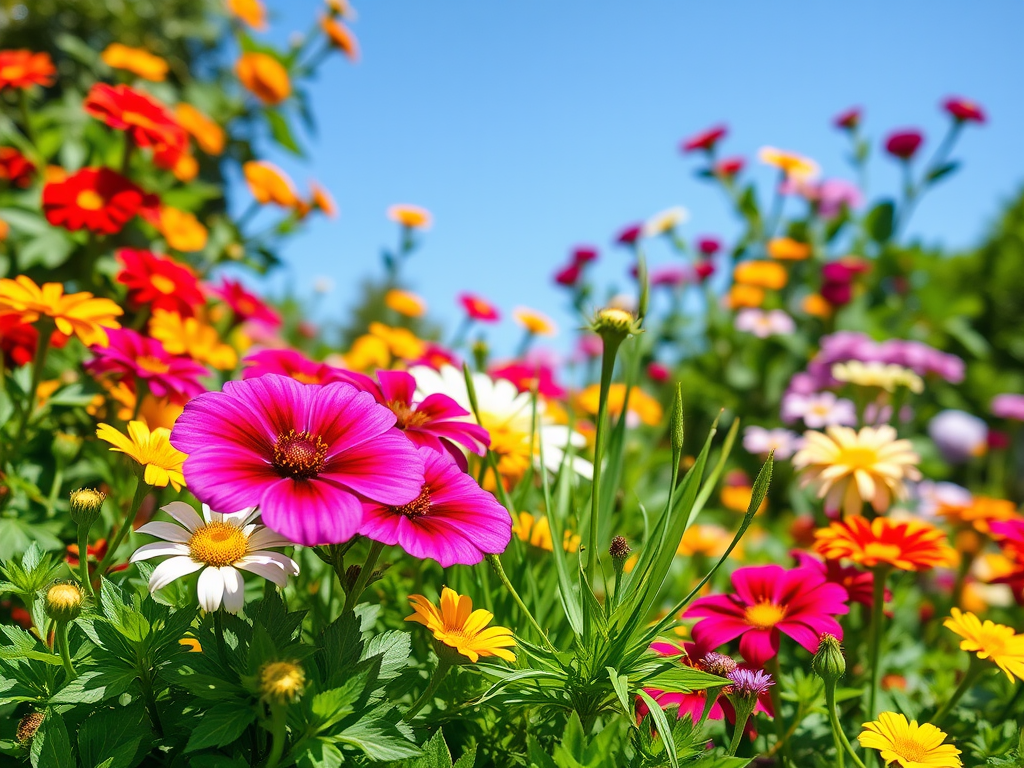Maintaining a vibrant and flourishing flower bed is a rewarding endeavor that many gardeners cherish. However, the presence of pesky weeds can threaten the health and beauty of your blossoms. Choosing the right weed killer is not just about eradication; it’s about safeguarding your blooms while ensuring sustainable gardening practices. With so many options on the market, how can you find the most effective solutions that won’t harm your cherished plants? In this article, we will explore the best weed killers tailored specifically for flower beds, helping you create a stunning display without sacrificing plant health.
Understanding the types of weed killers available is crucial for effective garden management. Weed killers, commonly known as herbicides, can be classified into two main categories: selective and non-selective. Selective herbicides target specific types of weeds, allowing you to eliminate unwanted plants without damaging your flowers. On the other hand, non-selective herbicides kill any plant they come in contact with, making them a less suitable option for flower beds. When choosing a product, safety considerations are paramount, especially regarding pets and children who may come into contact with treated areas.
Understanding Weed Killers

What are Weed Killers?
Weed killers are chemical or organic substances used to control unwanted plants in gardens and landscapes. They act by targeting specific biological processes in weeds, disrupting their growth and development. An effective weed killer can significantly reduce competition for nutrients, sunlight, and water, allowing your flowers to thrive. In horticulture, ensuring that the right weed killer is used can lead to healthier plants and more robust blooms.
Types of Weed Killers
- Selective Herbicides: These are designed to kill specific types of weeds while sparing others. Ideal for preventing harm to flower beds.
- Non-selective Herbicides: They kill all vegetation, including desirable plants, making them risky for flower beds.
- Organic Weed Killers: Made from natural ingredients, these options are safer for the environment and help maintain soil health.
Factors to Consider When Selecting a Weed Killer

When you’re in the market for a weed killer, several factors warrant your attention. Firstly, assess the compatibility of the product with your flower varieties. Different plants respond distinctly to herbicides, and a product harmful to one type may be safe for another. Additionally, consider the environmental impact; selecting a weed killer that is both effective and safe for nearby wildlife, pets, and children is essential. Furthermore, ease of application is significant, as some products require specific techniques for optimal use.
Reviews of the Top Weed Killers for Flower Beds
After thorough research, we’ve pinpointed five weed killers that excel in protecting flower beds while effectively removing weeds. Below is a detailed comparison to help you choose the best option for your blooming paradise.
| Product Name | Type | Key Benefits | Best For |
|---|---|---|---|
| Ortho WeedClear Lawn Weed Killer | Selective | Fast acting, safe for most flowers | Annual and perennial flowers |
| Roundup Super Concentrate | Non-selective | Works on all weeds, long-lasting effect | Paths and driveways |
| Green Gobbler Vinegar Weed Killer | Organic | Environmentally friendly, pet safe | Vegetable and flower gardens |
| BioAdvanced All-in-One Lawn Weed & Crabgrass Killer | Selective | Specific formulation for stubborn weeds | Flower beds with tough weeds |
| Spectracide Weed & Grass Killer | Non-selective | Fast-acting, ideal for clearing large areas | Under shrubs and trees |
Now, let’s delve deeper into the features and benefits of these top products for maintaining your flower beds.
Ortho WeedClear Lawn Weed Killer: Features and Benefits
This selective herbicide has garnered praise for its efficacy and safety profile. With key ingredients that specifically target broadleaf weeds, it allows flower varieties to flourish. Some notable advantages include its fast-acting formula and its low toxicity to desirable plants, making it a favorite among flower enthusiasts. However, be mindful that it may require multiple applications for persistent weeds.
Roundup Super Concentrate: Features and Benefits
For a powerful non-selective option, Roundup Super Concentrat stands prominent. It offers an impressive long-lasting effect on all types of weeds, ensuring fewer applications are needed. Ideal for areas where no flowers are present, this product works wonders on pavements and driveways. Nevertheless, caution is advised as it may inadvertently affect surrounding plants.
Green Gobbler Vinegar Weed Killer: Features and Benefits
If you’re leaning towards organic solutions, Green Gobbler is your go-to. This environmentally friendly option is crafted from natural ingredients, ensuring safety for pets and children. Its effectiveness against common garden weeds makes it a popular choice without the fear of harmful chemicals. However, organic weed killers may require a bit more effort and time to see results compared to chemical alternatives.
Tips for Applying Weed Killers in Flower Beds
Application of weed killers warrants careful consideration to protect your flowers. It’s crucial to follow best practices to ensure that your blooms remain unharmed during the process. Timing is everything; applying the product when the weeds are small and actively growing will yield the best results. Also, consider the weather conditions; avoid applications before rain or during harsh windy days to prevent drift onto your flowers’ leaves.
- Use targeted application techniques: a precise nozzle can help.
- Cover nearby flowers with plastic or cardboard to shield them.
- Always read and follow label instructions to ensure safety.
Conclusion
In conclusion, choosing the right weed killer for your flower beds is essential not only for controlling unwanted growth but also for nurturing the beauty of your blossoms. By understanding different types of weed killers and carefully considering your options, you can maintain a beautiful garden that shines with vibrant colors. Whether you opt for organic solutions or selective herbicides, remember to prioritize safety and environmental health while making your selection.
Frequently Asked Questions
- What is the best time to apply weed killer? Spring is often the ideal time, but always review the specific product guidelines.
- Are there any organic weed killers available? Yes, several organic options are effective and safe for flower beds.
- How long does it take for weed killers to work? Most products will show results within a few days to a couple of weeks, depending on the type.
- Can I use weed killer while my flowers are blooming? It’s generally best to avoid applying weed killers during blooming periods unless the product specifies it is safe.
- How can I protect my flowers when using weed killer? Utilize targeted application techniques, cover plants with plastic or cardboard, and choose selective herbicides.
